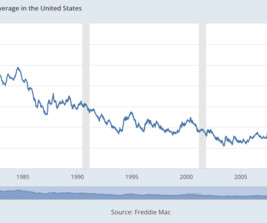iBuyer vs. Real Estate Agent: How Do the Experiences Compare?
HomeLight
JANUARY 3, 2022
An iBuyer uses technology to value the home, sometimes performs a walkthrough, and may adjust the price based on the cost of needed repairs. However, there still are some contingencies to clear before they can close, such as the home inspection , the home appraisal , and the buyer’s lender approving their mortgage.















Let's personalize your content